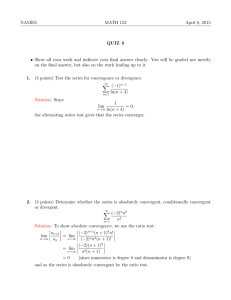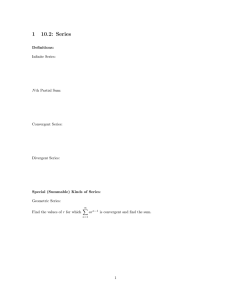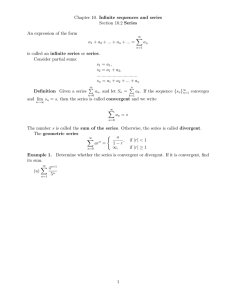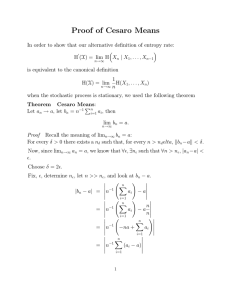Section 12.4, problem 44
advertisement
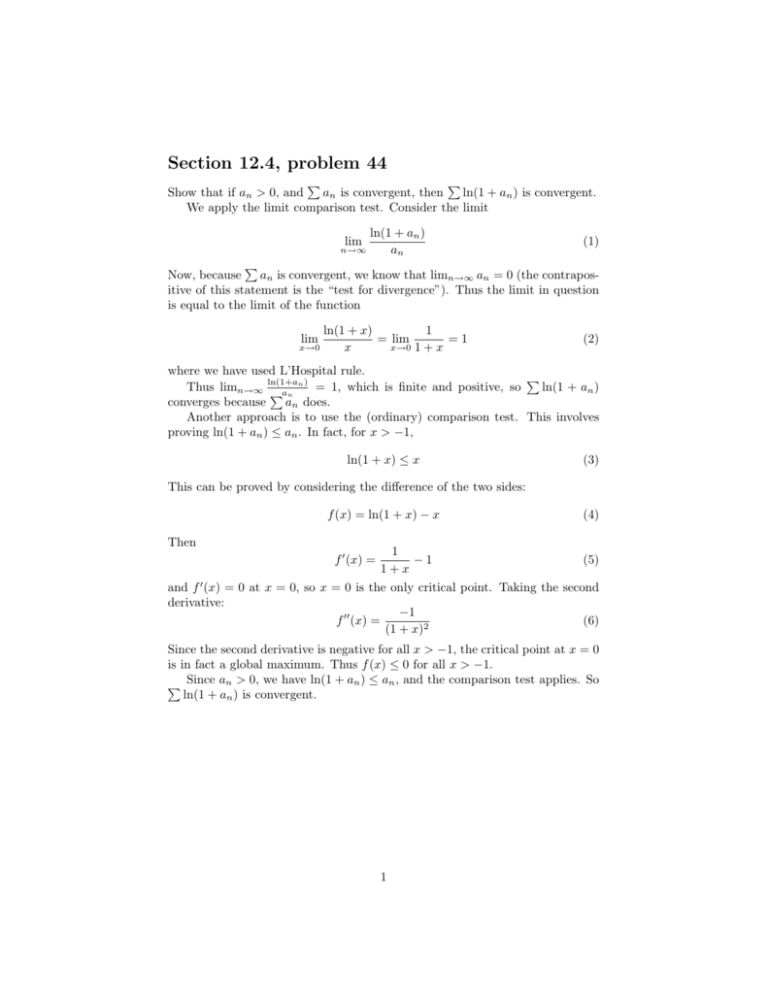
Section 12.4, problem 44 P P Show that if an > 0, and an is convergent, then ln(1 + an ) is convergent. We apply the limit comparison test. Consider the limit lim n→∞ ln(1 + an ) an (1) P Now, because an is convergent, we know that limn→∞ an = 0 (the contrapositive of this statement is the “test for divergence”). Thus the limit in question is equal to the limit of the function lim x→0 ln(1 + x) 1 = lim =1 x→0 x 1+x (2) where we have used L’Hospital rule. P n) = 1, which is finite and positive, so ln(1 + an ) Thus limn→∞ ln(1+a Pan converges because an does. Another approach is to use the (ordinary) comparison test. This involves proving ln(1 + an ) ≤ an . In fact, for x > −1, ln(1 + x) ≤ x (3) This can be proved by considering the difference of the two sides: f (x) = ln(1 + x) − x Then f 0 (x) = 1 −1 1+x (4) (5) and f 0 (x) = 0 at x = 0, so x = 0 is the only critical point. Taking the second derivative: −1 f 00 (x) = (6) (1 + x)2 Since the second derivative is negative for all x > −1, the critical point at x = 0 is in fact a global maximum. Thus f (x) ≤ 0 for all x > −1. P Since an > 0, we have ln(1 + an ) ≤ an , and the comparison test applies. So ln(1 + an ) is convergent. 1
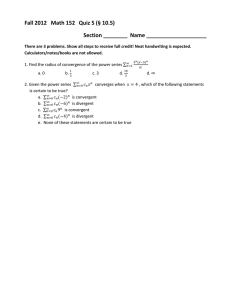
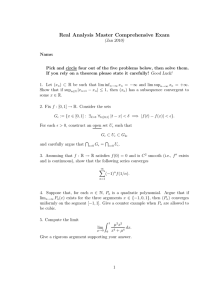
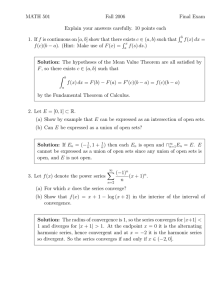
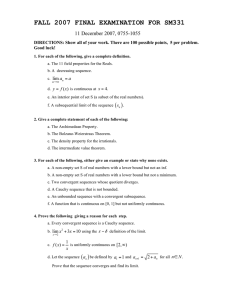
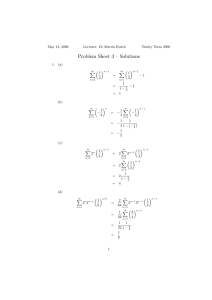
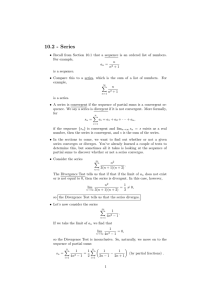
![MA342A (Harmonic Analysis 1) Tutorial sheet 8 [December 10, 2015] Name: Solutions √](http://s2.studylib.net/store/data/010415901_1-00035e0c3b9d31c812df276d6fe8c92d-300x300.png)

